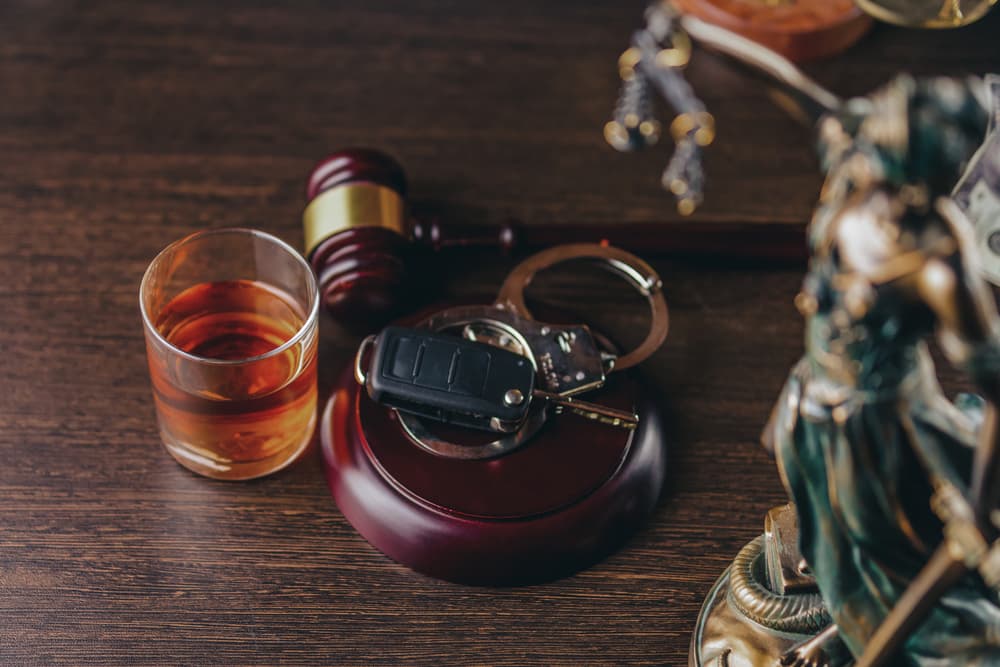Did police stop you for a DWI in Texas? Despite your fear, during this time, you have several legal rights. For example, before chemical testing or making statements to a law enforcement officer, you have the right to consult a DWI defense lawyer.
Throughout the DWI process, an experienced criminal defense attorney can be helpful. Specifically, a lawyer can advise you on important decisions, negotiate with prosecutors, and represent you at all court appearances. Your attorney will aggressively fight for your legal rights and interests.
What Can Happen During a Texas DWI Stop, and What are Your Legal Rights?
During a DWI (Driving While Intoxicated) stop in Texas, several things can occur, and you should always understand your legal rights in such situations.
First, if a law enforcement officer suspects you of driving under the influence of alcohol or drugs, they may pull you over for a traffic violation – or upon observing erratic driving behavior.
During the stop, the officer may ask you questions and look for signs of impairment, such as slurred speech or the smell of alcohol.
Next, the officer may request that you perform field sobriety tests, such as walking in a straight line or standing on one leg, to assess your level of impairment. Additionally, they may administer a preliminary breath test using a handheld device to measure your blood alcohol concentration (BAC) level.
It’s important to note that in Texas, you have the right to refuse to take these roadside tests without facing immediate legal consequences.
If the officer has probable cause to believe you are intoxicated based upon their observations and the results of any tests, they may place you under arrest for DWI. At this point, you will be transported to the police station or a nearby facility for further testing – typically a breath or blood test – to determine your BAC more accurately.
During a DWI stop in Texas, you have certain legal rights that law enforcement officers must respect:

- Right to Remain Silent – You have the right to refuse to answer any questions beyond providing basic identifying information, such as your name and address.
- Right to Refuse Field Sobriety Tests – You have the right to decline to perform field sobriety tests without facing immediate consequences, though refusal will not necessarily prevent an arrest.
- Right to Legal Representation – You have the right to consult a DWI defense attorney before submitting to chemical testing or making any statements to law enforcement.
Understanding and asserting your legal rights during a DWI stop can protect your interests and ensure that the authorities handle your case fairly and within the bounds of the law.
How Can a Texas DWI Lawyer Help?
A Texas DWI lawyer can provide invaluable assistance in navigating the complexities of a DWI case and protecting your rights.
Here are several ways a DWI lawyer can help you:
- Legal Experience – A skilled DWI lawyer possesses in-depth knowledge of Texas DWI laws, court procedures, and legal defenses. They can analyze the details of your case, identify potential legal issues, and develop effective defense strategies tailored to your specific circumstances.
- Case Evaluation – A skilled Texas DWI lawyer will thoroughly review the evidence against you, including police reports, breath or blood test results, and witness statements. They will assess the strengths and weaknesses of the prosecution’s case and advise you on the best course of action to take.
- Negotiation—Sometimes, a DWI lawyer negotiates with the prosecution to seek a favorable plea deal or alternative sentencing arrangement. This may involve reducing the charges, minimizing penalties, or pursuing alternative sentencing options, such as probation or alcohol education programs.
- Defense Representation – If your case proceeds to a courtroom trial, a DWI lawyer will provide zealous advocacy on your behalf. They will challenge the prosecution’s evidence, cross-examine the prosecution’s witnesses, and present persuasive arguments to defend your innocence or lessen the consequences of a conviction.
- Chemical Testing Challenges – Experienced DWI lawyers are well-versed in challenging the accuracy and reliability of chemical testing methods used to determine intoxication, such as breathalyzer or blood tests. They can carefully scrutinize law enforcement officers' procedures and challenge the admissibility of test results in court.
- License Suspension Defense – A DWI lawyer can also represent you during administrative license suspension hearings and fight to protect your driving privileges. They can challenge the legality of the traffic stop, the validity of the chemical tests, or other factors that may affect the suspension of your driver’s license.
Hiring a skilled DWI lawyer in Texas can greatly improve your chances of achieving a favorable outcome in your DWI case by leveraging their legal experience, negotiation skills, and courtroom experience to protect your rights and interests.
Potential Legal Options in a Texas DWI Case

When facing a Texas DWI charge, several potential legal options are available to accused individuals, including negotiating a plea deal or asserting a defense in court.
One option is negotiating a plea deal with the prosecution. In a plea deal, the defendant agrees to plead guilty to a lesser charge or accept a reduced sentence in exchange for avoiding the time and uncertainty of a trial.
For example, the prosecution may offer to reduce a DWI charge to reckless driving or offer a lighter sentence in exchange for the defendant’s cooperation. Negotiating a plea deal can be beneficial in cases where the evidence against the defendant is strong or when mitigating factors may warrant leniency.
Another option is to assert a defense in court.
Several potential defenses can challenge a DWI charge in Texas, including:
- Challenging the initial traffic stop on Fourth Amendment grounds
- Questioning the accuracy of chemical testing or field sobriety test results
- Alleging necessity or duress, which involves arguing the accused individual had no choice but to drive while intoxicated due to an emergency or threat of harm
Ultimately, the best legal option in a Texas DWI case will depend upon the specific facts and circumstances of the case, as well as the defendant’s goals and priorities.
Consulting an experienced DWI defense attorney is crucial in evaluating the available options and determining the most effective strategy for achieving a favorable case outcome.
Speak With a Knowledgeable DWI Defense Lawyer in Texas Today
If you are currently pending a criminal DWI charge in Texas, you must have skilled legal representation in your corner at every stage of the proceedings.
Your criminal defense lawyer can immediately investigate the circumstances of your arrest and determine your legal options. They can also negotiate with state prosecutors on your behalf for a plea deal or aggressively fight for your rights in a courtroom setting.
